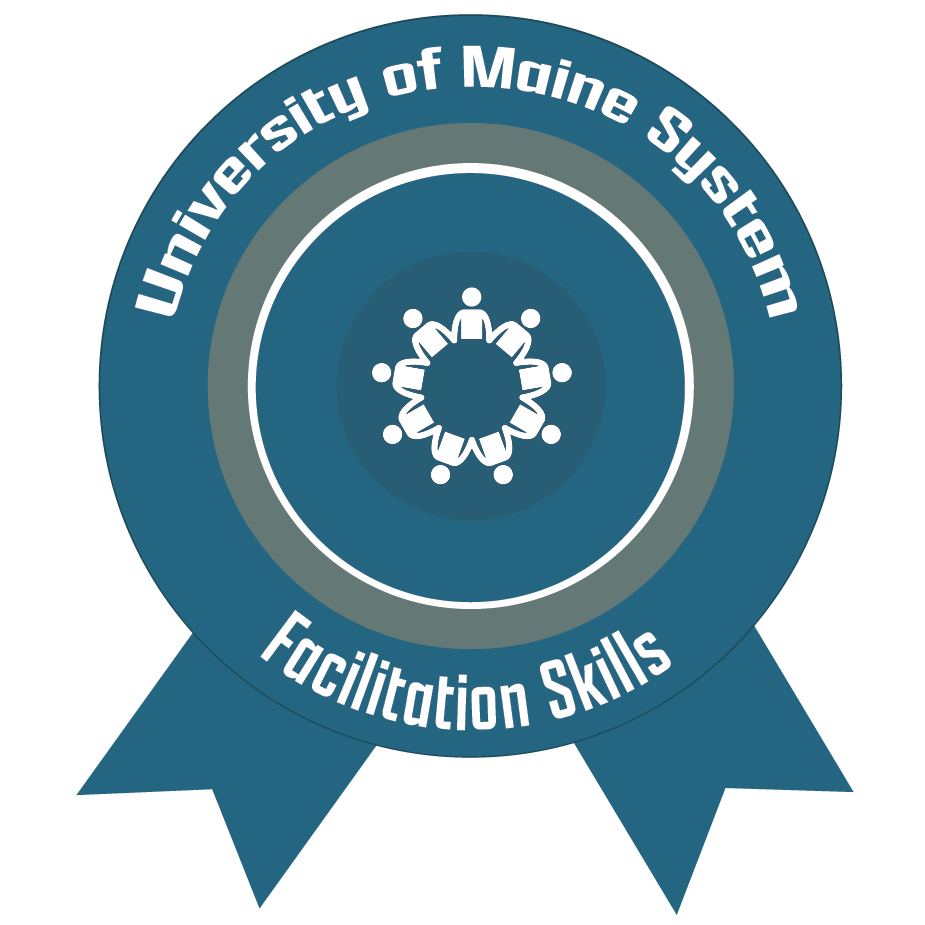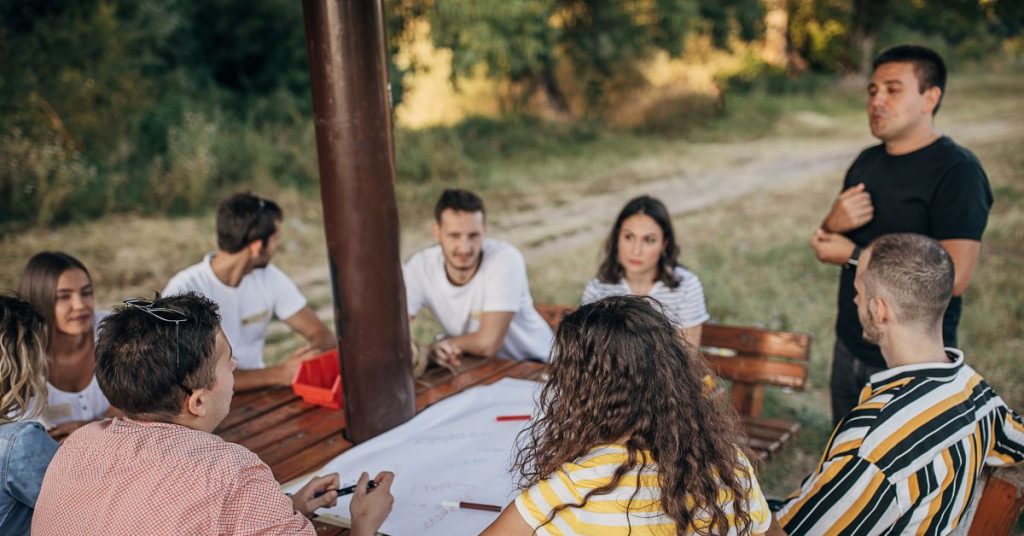
Strengthening Your Facilitation Skills
If your employer is a compact member of the Harold Alfond Center for the Advancement of Maine’s Workforce, you may be eligible to take this program at a reduced cost. Visit our Harold Alfond Center Workforce Development Funding page for more information.
PROGRAM DESCRIPTION
In your professional or volunteer work, have you ever needed to:
- help a new group get started?
- guide a group to solve a problem?
- help a group deal with a conflict?
Skills for working with groups don’t usually come naturally and are not routinely taught. If you have ever worked with a group and wished you had more practice or skill, Strengthening Your Facilitation Skills is for you.
Are you involved with municipal boards, non-profit committees, staff teams or community members that need to produce results? Are these groups as successful at getting the job done as you’d like? This training can help you get great results.
Fun, creative, and thought-provoking, the Strengthening Your Facilitation Skills, Level 1 curriculum is a dynamic and comprehensive multi-session facilitation training series full of activities, practice opportunities, and potential aha! moments.
PROGRAM BENEFITS
Participants in this training will:
- build competence in essential facilitation skills and knowledge
- actively engage and collaborate with other participants
- apply a variety of processes for guiding groups to useful outcomes
- practice facilitating and receiving feedback in a supportive environment.
TOPICS COVERED
Session One: Facilitation Basics
- An Introduction to Facilitation Core Values of Facilitation
- Working Agreements
- Contracting
- Decision-making Options
- Stages of Group Development
- Facilitation Guiding Principles and Practices
- Behaviors that Hinder and Help Groups
- Developing a Meeting Design
Session Two: Facilitation in Action
- Achieving Desired Outcomes
- Generating Ideas, Narrowing Ideas and Action Planning
- Identifying Core Facilitation Practices
- Recognizing and Redirecting Difficult Group Situations
- Assessing Your Facilitation Strengths and Weaknesses
Session Three: Facilitation Challenges & Opportunities
- Using the Left-Hand Column
- Designing Interventions and Making Interventions
- Using the Diagnosis-Intervention Cycle
- Clarifying Circle Consulting Method
- Opening and Closing Ideas and Other Resources
- Evaluation, and Celebration
WHO SHOULD ENROLL
This course is designed to benefit:
- Analysts
- Community-based groups
- Consultants
- Educators/Teachers
- Executives
- Managers
- Municipal Officials
- Nonprofit organizations
- Trainers
- Sales Professionals
- Others whose professional and/or community work involves working with groups to achieve results.
The creation of a cohesive group is a focus of the series. It is expected that if you join the training, you will make a commitment to attend all three sessions and participate as fully as possible. If it’s not possible for you to make that commitment at this time, please consider waiting to take the training.
Not sure if this program is right for you? Contact us at um.continuinged@maine.edu or 207.581.3167 and we can help you figure it out.
INSTRUCTOR
Kristen Grant, Senior Extension Program Manager, Coastal Community Resilience and DEI Leader (she/her)
Kristen’s work focuses on the interactions between the people, and ecosystems of the coast. Her work includes a range of activities to build the capacity of coastal communities to plan and adapt for their future, such as building community engagement and facilitation skills, considering housing options, addressing coastal access and waterfront development issues, and understanding erosion trends and planning for coastal hazards. To this work, Kristen brings a Master of Science degree focused on Environmental Education, and has an extensive background in outreach education and community development, as well as a decade of experience in training facilitators.
PROGRAM DATES & TIMES
For those looking to build their virtual facilitation skills, Kristen Grant also offers Building Your Virtual Facilitation Skills. Learn more here.
MODALITY
This program will be offered in-person at the University of Maine at Augusta campus.
Facilitation is a skill that can only be mastered through practice. With this fact in mind, opportunities for training participants to practice facilitation are central to the training design. Each participant will sign up and prepare to facilitate an activity with a small group during one session.
PROGRAM FEE
$400
Maine Community Foundation Scholarship Resources
CLASS CAPACITY
18 participants
Evidence of Learning
Certificates
Certificates of Completion available.
Continuing Education Units
20 hours / 2 CEUs available.
If you’d like to receive CEUs for participating in this course, please note this during your registration.
Microcredential Pathway

Successful completion of this course satisfies the learning requirements for the University of Maine System Facilitation Skills Microcredential Pathway when accompanied by assessments.
Learn more about the Facilitation Skills Pathway
Learn more about University of Maine System Microcredentials
ACCOMMODATIONS
For more information or to request an accommodation contact um.continuinged@maine.edu, 207.581.3167.



